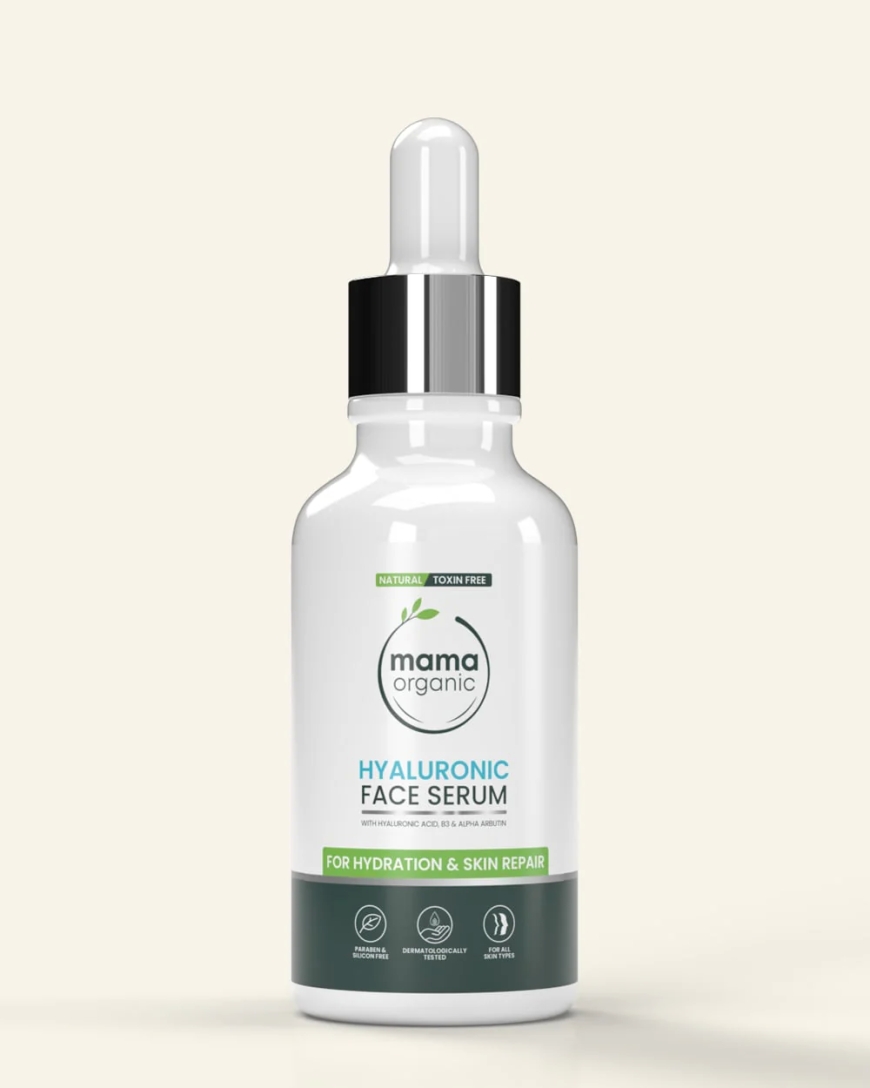Hyaluronic Acid Face Serum The Ultimate Guide to Radiant Skin
Hyaluronic Acid Face Serum The Ultimate Guide to Radiant Skin.

Introduction
Ever wondered why your skin feels dull and dry despite trying countless moisturizers? Enter hyaluronic acid face serum—a game-changer in skincare that promises hydration and a radiant complexion. But what exactly is hyaluronic acid, and why is it a must-have in your beauty arsenal? Let’s dive into the science, benefits, and usage of Hyaluronic acid face serum to transform your skincare routine.
Understanding Hyaluronic Acid
Natural Occurrence in the Body
Hyaluronic acid (HA) is a naturally occurring substance in the human body, primarily found in the skin, connective tissue, and eyes. It acts as a humectant, meaning it attracts and retains moisture, holding up to 1,000 times its weight in water. This incredible capacity makes it essential for maintaining skin hydration and plumpness.
Benefits for Skin Health
As we age, our body's natural hyaluronic acid production decreases, leading to drier, less elastic skin. By incorporating a hyaluronic acid serum into your skincare routine, you can replenish your skin's hydration, reduce the appearance of fine lines, and improve overall skin health.
How Hyaluronic Acid Face Serum Works
Mechanism of Action
Hyaluronic acid works by drawing moisture from the environment into the skin and binding it within the skin cells. When applied topically, it forms a barrier on the skin’s surface, helping to lock in moisture and keep the skin hydrated.
Immediate and Long-Term Effects
Immediately after application, hyaluronic acid face serum can make your skin feel softer and more hydrated. Over time, consistent use can improve skin elasticity, reduce wrinkles, and enhance the skin's overall texture and tone.
Benefits of Hyaluronic Acid Face Serum
Deep Hydration
Hyaluronic acid is known for its ability to provide intense hydration by drawing moisture into the skin. This deep hydration helps to keep the skin looking plump and youthful, reducing the appearance of dryness and flakiness.
Anti-Aging Properties
One of the key benefits of hyaluronic acid is its anti-aging effects. By maintaining hydration, it helps to smooth out fine lines and wrinkles, giving the skin a firmer, more youthful appearance.
Skin Barrier Support
Hyaluronic acid also supports the skin barrier by keeping it hydrated and reducing transepidermal water loss (TEWL). A healthy skin barrier protects against environmental damage and reduces the risk of irritation and dryness.
Enhanced Skin Texture
Regular use of hyaluronic acid face serum can improve the texture of your skin, making it feel smoother and more supple. It helps to fill in fine lines and uneven areas, giving your skin a more refined look.
Choosing the Right Hyaluronic Acid Serum
Key Ingredients to Look For
When choosing a hyaluronic acid serum, look for additional ingredients like vitamin C, peptides, or niacinamide that can enhance its benefits. Avoid products with alcohol or fragrances if you have sensitive skin, as these can cause irritation.
Types of Hyaluronic Acid
There are different molecular weights of hyaluronic acid, each with unique benefits. Low molecular weight HA penetrates deeper into the skin for intensive hydration, while high molecular weight HA stays on the surface to provide immediate moisture and create a protective barrier.
Concentration Levels
Serums with a hyaluronic acid concentration of 1-2% are generally effective for most skin types. Higher concentrations can provide more intense hydration but may also increase the risk of irritation for sensitive skin.
How to Use Hyaluronic Acid Face Serum
Daily Routine Integration
Incorporate hyaluronic acid face serum into your daily skincare routine by applying it after cleansing and toning but before moisturizing. This allows it to penetrate the skin and lock in moisture effectively.
Layering with Other Skincare Products
Hyaluronic acid serums can be layered with other skincare products like vitamin C serums, retinol, and moisturizers. Apply the serum first, followed by heavier products to ensure optimal absorption and effectiveness.
Frequency and Dosage
For best results, use the serum twice daily—once in the morning and once at night. A pea-sized amount is usually sufficient to cover the entire face and neck. Adjust the frequency based on your skin's needs and how it reacts to the product.
Potential Side Effects and Precautions
Common Side Effects
While hyaluronic acid is generally well-tolerated, some people may experience mild irritation, redness, or itching. These side effects are usually temporary and diminish as your skin adjusts to the product.
Who Should Avoid Using It?
People with very sensitive or reactive skin should do a patch test before incorporating hyaluronic acid serum into their routine. If you experience persistent irritation, discontinue use and consult a dermatologist.
Tips for Sensitive Skin
If you have sensitive skin, choose a hyaluronic acid serum formulated without alcohol, fragrance, or other potential irritants. Start with a lower concentration and gradually increase as your skin builds tolerance.
Hyaluronic Acid Serum for Different Skin Types
Oily Skin
Hyaluronic acid serums are great for oily skin as they provide hydration without adding oil or clogging pores. Look for lightweight, gel-based formulas that absorb quickly and leave a matte finish.
Dry Skin
For dry skin, opt for a hyaluronic acid serum with added emollients or oils to provide extra nourishment. A more concentrated formula can help to alleviate dryness and flakiness effectively.
Combination Skin
Combination skin benefits from a balanced approach. Use a serum that offers lightweight hydration to the oily areas while providing enough moisture to the dry patches. Multi-layering with different products can help address varying skin needs.
Sensitive Skin
Sensitive skin types should look for serums with soothing ingredients like aloe vera or chamomile alongside hyaluronic acid. Avoid formulations with potential irritants and perform a patch test before full application.
DIY Hyaluronic Acid Serum Recipes
Basic DIY Recipe
Create a simple DIY hyaluronic acid serum by mixing 1 gram of hyaluronic acid powder with 100 ml of distilled water. Stir until fully dissolved and store in a sterilized dropper bottle. This basic serum provides hydration and can be customized with additional ingredients.
Enhanced Recipes for Specific Skin Concerns
For added benefits, mix in a few drops of vitamin E oil or rosehip oil for extra nourishment. You can also add a small amount of glycerin for additional moisture retention.
Storage and Shelf Life
Store your DIY serum in the refrigerator to prolong its shelf life, typically around 2-3 weeks. Always use clean tools and containers to prevent contamination.
Comparing Hyaluronic Acid Serums
Hyaluronic Acid vs. Other Serums
Compared to other serums like retinol or vitamin C, hyaluronic acid focuses primarily on hydration rather than exfoliation or brightening. It can be used in conjunction with other treatments for a comprehensive skincare routine.
Comparing Popular Brands
Popular hyaluronic acid serums from brands like The Ordinary, Neutrogena, and L’Oréal each have unique formulations and benefits. Compare ingredients, concentration levels, and user reviews to find the best fit for your skin.
Cost vs. Value Analysis
While some hyaluronic acid serums can be pricey, many affordable options deliver comparable benefits. Consider the serum’s ingredient quality, brand reputation, and personal skin needs when evaluating cost versus value.
Hyaluronic Acid Face Serum in Skincare Regimens
Morning vs. Evening Use
Hyaluronic acid can be used both morning and evening. In the morning, it helps prepare the skin for makeup and environmental exposure. At night, it supports the skin’s natural repair processes.
Seasonal Adjustments
Adjust your hyaluronic acid usage according to seasonal changes. In dry winter months, you might need more frequent applications or a richer formulation. In humid summer months, a lighter serum may suffice.
Complementary Skincare Products
Pair your hyaluronic acid serum with products like moisturizers, sunscreens, and treatments targeting specific concerns like acne or pigmentation. This ensures a well-rounded skincare routine.
Customer Reviews and Feedback
Common Praises
Customers often praise hyaluronic acid serums for their ability to deeply hydrate, improve skin texture, and provide a youthful glow. Many appreciate the lightweight, non-greasy feel.
Typical Criticisms
Some users report issues with sticky residue or irritation, particularly with higher concentrations. Ensuring the right formulation for your skin type can mitigate these issues.
Overall Satisfaction
Overall, most users find hyaluronic acid serums to be a valuable addition to their skincare regimen, citing noticeable improvements in hydration and skin appearance.
Sustainability and Ethical Considerations
Eco-Friendly Packaging
Many brands are moving towards eco-friendly packaging for their serums, using recyclable materials and reducing plastic waste. Choose brands that prioritize sustainability if this aligns with your values.
Cruelty-Free Testing
Look for hyaluronic acid serums that are certified cruelty-free, ensuring no animal testing was involved in their development. This is important for ethical and responsible skincare choices.
Sustainable Sourcing of Ingredients
Some brands emphasize sustainably sourced hyaluronic acid, either from plant-based or synthetic origins. This can be a key consideration for environmentally conscious consumers.
Future Trends in Hyaluronic Acid Serums
Innovative Formulations
Expect to see hyaluronic acid serums with innovative formulations, incorporating new technologies to enhance absorption and efficacy. These advancements will continue to improve how HA benefits the skin.
New Delivery Systems
Emerging delivery systems, such as microencapsulation, allow for better penetration and prolonged release of hyaluronic acid, providing long-lasting hydration.
Integrations with Other Ingredients
Future serums may integrate hyaluronic acid with cutting-edge ingredients like peptides, growth factors, or stem cell extracts, offering multi-functional benefits.
FAQs
1. How Often Should I Use Hyaluronic Acid Serum?
Using hyaluronic acid serum twice daily is typically effective for maintaining hydration. Adjust the frequency based on your skin's needs and response.
2. Can I Use It with Retinol?
Yes, hyaluronic acid can be used with retinol. Apply hyaluronic acid first to provide hydration, followed by retinol to minimize potential irritation.
3. Is Hyaluronic Acid Safe During Pregnancy?
Hyaluronic acid is generally considered safe during pregnancy, but it’s always best to consult with your healthcare provider before starting any new skincare products.
4. How Long Before I See Results?
Results can vary, but many users notice improvements in skin hydration and texture within a few weeks of consistent use. Long-term benefits include reduced fine lines and enhanced skin elasticity.
5. Can I Make My Own Hyaluronic Acid Serum?
Yes, DIY hyaluronic acid serums are a cost-effective option. Ensure you use quality ingredients and follow proper storage guidelines for the best results.
Conclusion
Hyaluronic acid face serum offers a powerful solution https://news.bangboxonline.com/ for achieving hydrated, youthful-looking skin. Its ability to attract and retain moisture makes it a standout ingredient in any skincare routine. Whether you’re dealing with dryness, or fine lines, or simply seeking a radiant complexion, hyaluronic acid serum provides versatile benefits suitable for all skin types. Incorporate it into your daily regimen and enjoy the transformative effects of this skincare superstar.
What's Your Reaction?















![Prima Ease CBD Gummies [I've Tested] TRUTH EXPOSED!](https://news.bangboxonline.com/uploads/images/202412/image_430x256_6766ac778f8ee.jpg)







![[Latest] Modacrylic Fiber Market to Cross $794.21 Million in Total Revenue by 2030 | Riding on a Strong 4.7% CAGR](https://news.bangboxonline.com/uploads/images/202408/image_430x256_66d155cde3765.jpg)